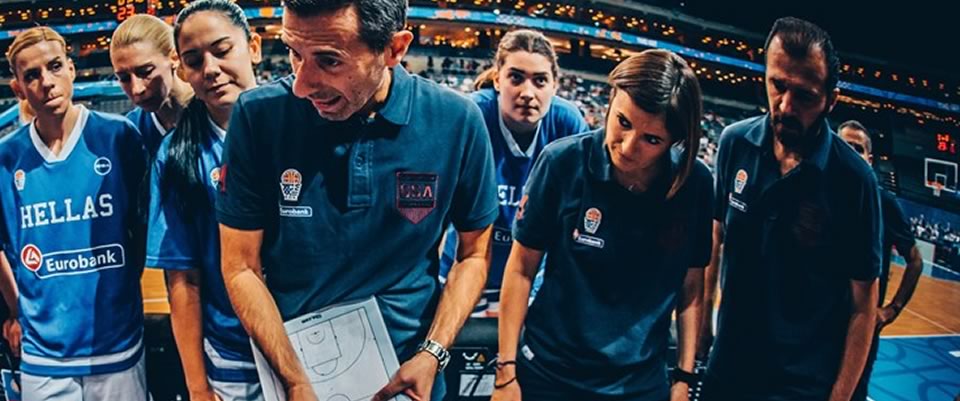Personal Improvement Program

One of the maxims that has influenced my thinking as a head basketball coach is that “Champions have no off-season.” It led to my naming the spring and summer as our program’s “Improvement Season.” I expect our players to work at improving themselves using the program that we have developed for them. I believe that I must lead by example. I also believe that if I am not improving as a coach, then I am holding our players and program back.
I develop a specific, written improvement program for myself and for our assistant coaches at the end of each season. Here are some ideas to use to develop a coaching improvement plan for our staff.
1. Develop a specific written summer workout plan for each of your players. A coach is only as good as his or her players allow. List the drills they need to do and how they can measure those drills in made shots or shooting percentages, repetitions for ball handling drills, and times they need to meet in their workouts. Having a unique plan for each player will force you to think about how that player will be able to contribute in the coming season.
2. Choose a specific theme that is critical to the on court success of your team or a specific coach to study for the spring and summer. If your theme is improving your ball screen offense, make a list of every resource, books, DVDs, websites, coaches who are effective with that offense. Then schedule a specific time to read and watch those resources or meet with those coaches.
3. Hold your own mini-clinic by arranging a meeting with former players who are now coaching, coaches you have worked with, or any coach you feel you could learn from and who would also benefit from being included. Arrange a day, or two, or three where you can get together and share ideas with each other. Have a specific agenda for your clinic and assign each attendee a topic to present on.
4. List 10 ways that you can help your players to become better leaders. As John Maxwell says, leaders who grow followers add to their influence, leaders who grow leaders multiply their influence. If you are a head coach, also make a list of 10 ways that you can utilize your assistants more productively than you did last year. More important than just making the lists make a commitment to take action on the ideas.
5. Find a successful coach who would be willing to spend a couple of hours talking to you in person. It might be a state champion coach, a college coach, a coach whose teams play like you want yours to play, or a coach that you heard at a clinic that you would like to have a chance to learn more from. If you are an assistant coach, it could be any head coach that you look up to and would like to learn from.
6. Take 30-60 minutes once a week to sit where you won’t be interrupted and think about improving your program. Things you want to improve on, goals you want to achieve, what steps you will take to achieve those goals, anything that will make your program better. Make sure that you record every idea, goal, and action step that comes to mind on paper or with a voice recorder. You might not use all of the ideas once you flush them out, but it is important to capture them because they might lead to other thoughts that you can use.
7. Spend as much time as you can putting your drills, offensive and defensive schemes, philosophies and everything else about your program in writing. Make sure to include the specific teaching points, purpose, and objectives for each. Having your system in writing allows you to share it with assistants and provides better clarity for you. I agree with the statement that unless your philosophy is in writing, then you really don’t have a philosophy.
8. Develop an off-season reading list of books that will help you become a better leader and block out 30 minutes a day to do your reading.
9. Schedule time for watching some of your game films from last year. Look at what teams who successfully defended you did and what types of offensive movements you had trouble guarding. List the steps that you will take to improve in those areas and design the drills that you will use to make those improvements. Sometimes you can learn more when you are looking at the films without the emotion, stress, and fatigue that you watched them with during the season.
10. Set your statistical goals for the upcoming season and make a plan to achieve them. Make sure to have goals for both practices and games and for individual games as well as the entire season. Your improvement season skill workouts should reflect those goals and will be your first chance to measure your team’s progress toward those goals.

